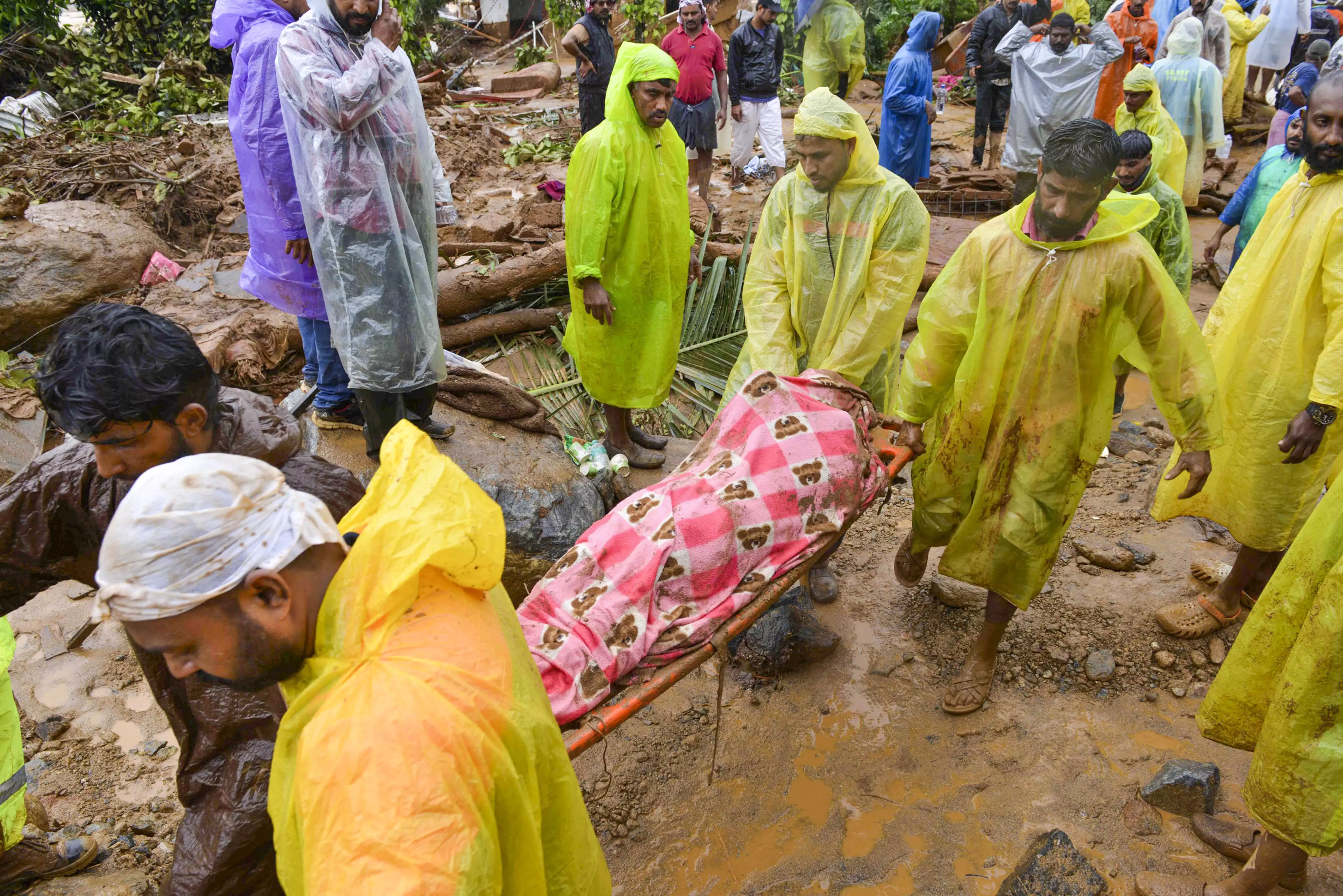
Four days after the tragedy, many bodies are yet to be discovered.
Wayanad landslides | DNA tests to identify bodies take a toll on kin, doctors
Due to the severity of the disaster, visual identification is no longer feasible, making DNA testing an essential step in the recovery process.

After the devastating landslides in Chooralmala and Mundakkai, Wayanad, the Kerala government has initiated DNA tests to help identify dismembered bodies. The disaster has left families in anguish as they face the painful task of recognising their loved ones, whose remains are severely damaged and disfigured. Even the doctors are under severe pressure, which leaves them emotionally drained.
Relatives of the victims are undergoing the traumatic process of DNA identification because many of the bodies are dismembered and unrecognizable. Due to the severity of the disaster, visual identification is no longer feasible, making DNA testing an essential step in the recovery process. The situation at hospitals, particularly at the Kalpetta Block Panchayat FamilyHealth Centre, is dire and heart-wrenching.
The Federal witnessed painful scenes of people wearing masks lined up to identify bodies.
Duty doctors, lifting the cloths covering the faces of the deceased, tried to assist families in recognising their relatives. However, the condition of many bodies, dismembered and decomposed, has made this task extremely difficult.
Khairuneesa, a relative of Abbas who is missing, was inconsolable. "It's unbearable. We identified the body by a mole on his neck, but others in the queue are claiming it's their loved one, too. The DNA test is our only hope to know for sure," she told The Federal. Ramesan, whose brother is missing, shared his agony: "I can't describe the pain of looking at those bodies, trying to recognise something familiar. We need the DNA tests to finally have some peace."
The gruelling DNA tests
Dr. Anil, a forensic expert from Kochi who came to Wayanad with his team, told The Federal, “The entire DNA testing process for identifying bodies typically takes one to three weeks. Initially, collecting and preparing samples from the body and relatives usually takes a few hours to a day. The extraction and profiling of DNA can take several days to a week, depending on the condition of the samples and laboratory efficiency. Once the DNA profiles are compared, the final reporting and communication of results add up to a few more days. We prioritise urgent cases, but overall timelines can vary based on workload and sample quality."
Even the doctors are under pressure, with multiple relatives staking claim for bodies.
"We are conducting DNA tests for approximately 20 dismembered bodies to accurately identify the victims. The problem is that it is not just one or two family members requesting DNA tests for a body, but rather multiple relatives — sometimes more than five — asking for tests on several bodies. This situation makes it a difficult task for us," Dr Anil told The Federal.
Confusion, distress mar process
For instance, the Wayanad district administration officially announced that the body of Rajan (50), a resident of Chamarajanagar taluk, had been found.
Despite initial identification through body parts, relatives later determined that the body was not Rajan’s, leading to further confusion and distress. Other families now claim that the body might belong to their missing relatives, prompting the need for DNA testing to confirm identities.
Among the nine missing family members of Mahadevamma from T. Narasipura, who had settled in Mundakai, Shreya's (19) body was found and cremated. Shivanna’s (50) body was identified, and the funeral was conducted.
On Thursday morning, officials reported finding Savitri’s (52) body, but it was unrecognisable, leaving relatives to identify her by other body parts. This situation has necessitated a DNA test. Siddaraju (42), another son of Mahadevamma, was initially identified by his foot, which still had a shoe on it, despite the rest of the body having been dismembered.
However, relatives are not entirely sure if it is indeed him, necessitating DNA tests to confirm his identity. The body believed to be Gurumalla, another son of Mahadevamma, is also being claimed by four other families. Relatives identified Gurumalla by a mark on his face, but other families searching for their loved ones are also claiming the body as theirs. This situation has prompted the decision to conduct DNA tests to resolve the conflicting claims, according to Lakshmi, a relative of Gurumalla.
Next Story

